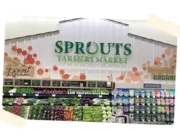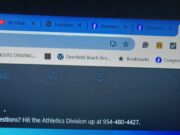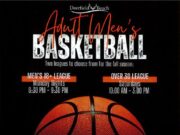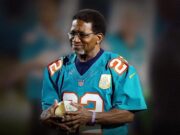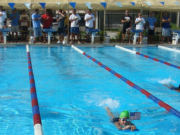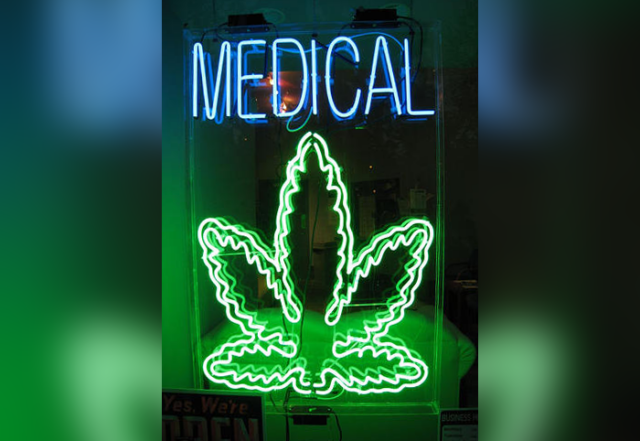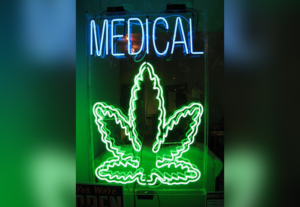
Deerfield-News.com-Deerfiweld beach,Fl- In the capital of Medical Marijuana in Florida, Deerfield Beach medical cannabis sales are booming despite a pandemic.
It appears that the pandemic has in fact helped medical cannabis sales statewide. Florida has just added edibles to the categories of ways to get your medical cannabis. Several of the dispensaries including Trulieve located on West Hillsboro Boulevard have begun to notify their patients of the new delivery method. Chocolates and other edible treats are now available at most Florida dispensaries for medical marijuana patients. Patients need to contact their physicians and have that method added to their prescriptions. Below is the new law allowing edibles.
64ER20-33 Standards for Production of Edibles
(1) An MMTC that produces edibles must comply with all requirements for food establishments in Chapter 500,
F.S., and any rules adopted pursuant to that chapter.
(2) All edibles must be produced by the MMTC in the MMTC’s department-approved processing facility and
packaged and labeled in accordance with s. 381.986, F.S., and the department’s MMTC Packaging and Labeling
rule.
(3) Before producing and dispensing edibles, an MMTC must:
(a) Comply with the variance procedure in Rule 64-4.023, F.A.C., to obtain department approval of the edible;
1. Through the variance request procedure, an MMTC must obtain approval of each edible product the MMTC
intends to produce and dispense. The variance request must demonstrate that the proposed edible, including its
packaging and labeling, are compliant with s. 381.986, F.S., and department rules. Each variance request will be
considered on a case-by-case basis.
2. As part of the variance approval process, the MMTC must submit a picture of the proposed edible bearing the
universal symbol, and the measurements of the edible and universal symbol, if applicable.
(b) Provide the department with a copy of a current valid permit to operate as a food establishment pursuant to
Chapter 500, F.S., from the Department of Agriculture and Consumer Services; and
(c) Provide the department with documentation from a nationally accredited certifying body that the MMTC’s
processing facility, including the area where edibles will be produced, has passed a Food Safety Good
Manufacturing Practices inspection.
(3) Edibles shall be one of the following shapes (including the three-dimensional form of each shape):
(a) Square;
(b) Circle;
(c) Rectangle;
(d) Triangle;
(e) Parallelogram;
(f) Oval; or
(g) Diamond.
(4) Edibles shall be in one of the following forms:
2
(a) Lozenges. For purposes of this rule, a “lozenge” is a hard edible that is held in the mouth and slowly
dissolved.
(b) Gelatins. For purposes of this rule, a “gelatin” is a semi-translucent edible made with water-soluble protein
derived from collagen, or a plant-based alternative.
(c) Baked goods. For purposes of this rule, a “baked good” is an edible comprised of dough or batter baked in
an oven by the MMTC.
(d) Chocolates. For purposes of this rule, a “chocolate” is a solid edible made of milk chocolate, dark chocolate,
or chocolate substitute such as carob. Chocolates may not contain any caramel, nougat, nuts, fruit, honey,
marshmallows, or any other such ingredient, toppings, or fillings.
(e) Drink Powders. For purposes of this rule, “drink powder” is an edible comprised of powder which is combined
with a fluid for consumption as a beverage by a qualified patient. Drink powders are exempt from the requirements of
subsection (3).
(5) In the case of multi-serving edibles, each single serving portion must be physically distinct or clearly marked
or delineated in a way that enables a reasonable person to determine the portion of the entire edible that constitutes a
single serving. If the single serving portion is not physically distinct, it must be easily separable in order to allow the
qualified patient to physically separate, with minimal effort, the single serving portion.
(6) An MMTC shall not produce or dispense any edibles that:
(a) Contain any color additives, whether natural or artificial;
(b) Contain or bear a reasonable resemblance to commercially available candy. For the purposes of this rule, a
product bears a reasonable resemblance to commercially available candy if the product is similar in appearance to an
existing candy product that is familiar to the public as a widely distributed, branded food product, such that the
edible could be mistaken for the branded product, especially by children;
(c) Bear any markings, symbols, images, graphics, or words, other than the universal symbol, as described
herein;
(d) Are decorated with icing, sprinkles, or other toppings of any kind; or
(e) Are a primary or bright color. Edibles shall be produced in a manner to minimize color intensity and other
color and visual characteristics attractive to children.
(7) Edibles shall not contain the following prohibited ingredients:
3
(a) Meat, poultry, or fish. For purposes of this rule, gelatin is not considered meat, poultry, or fish;
(b) Anything other than marijuana oil and ingredients that meet the definitions of “food” or “food additive” in s.
500.03, F.S.;
(c) Commercially manufactured food products that were not produced by the MMTC, unless the products are
used as an ingredient in a manner that renders them unrecognizable as the original commercial food product and the
MMTC does not state or advertise the edible contains the commercially manufactured food products;
(d) Any additive that increases potency or toxicity, or any psychoactive substance (e.g. nicotine, alcohol, and
caffeine).
(8) Edibles shall be marked with the universal symbol, unless impractical.
(a) It shall be considered impractical to mark a single serving portion of an edible with the universal symbol
when the edible is so small that a mark, stamp, or imprint of 1/16 inch by 1/16 inch would not fit on the edible or
where the edible is made of a substance that cannot be stamped (e.g. drink powder).
(b) The universal symbol shall be:
1. Marked on at least one side of each single serving portion of an edible such that the universal symbol is
distinguishable and easily recognizable;
2. Centered either horizontally or vertically on each single serving portion of an edible;
a. If centered horizontally on an edible, the height and width of the universal symbol shall be of a size that is at
least 25% of the single serving’s width, but not less than 1/16 inch by 1/16 inch;
b. If centered vertically on an edible, the height and width of the universal symbol shall be of a size that is at
least 25% of the single serving’s height, but not less than 1/16 inch by 1/16 inch; and
3. Used only by MMTCs licensed by the department.
(9) Tetrahydrocannabinol content in edibles shall meet the following requirements:
(a) A single serving portion of an edible shall not exceed 10 milligrams of tetrahydrocannabinol. A multiserving edible shall not exceed a total of 200 milligrams of tetrahydrocannabinol; and
(b) The total tetrahydrocannabinol potency printed on the label of an edible may vary by no more than 15
percent from the total potency result found on the certificate of analysis. Such variance shall not result in the edible
exceeding the maximum milligrams of tetrahydrocannabinol described in paragraph (9)(a).
4
(10) In addition to the food sanitation requirements in Chapter 500, F.S., and rules adopted pursuant to that
chapter, an MMTC shall ensure that:
(a) All edibles are shelf stable. For purposes of this rule, “shelf stable” means that the edible can be safely
stored at room temperature in a sealed container and does not require refrigeration after opening;
(b) Edibles are not to be dispensed after the labeled expiration date. Expired edibles shall be disposed of in
accordance with the MMTC Marijuana Waste Management and Disposal rule;
(c) Edibles on display in a dispensing facility are contained in a secure, locked case, cabinet, or container;
(d) Edibles and edible ingredients are stored, displayed, transported and handled in a sanitary manner and under
such conditions and temperatures to protect against contaminants unsafe for human consumption as defined by the
CMTL Definitions rule; and
(e) Edibles and edible ingredients are protected from dust, insects, rodents, or other vermin, toxic materials,
unclean equipment and utensils, germs, flooding by sewage, and overhead leakage.
(11) Except as provided herein, an MMTC may not sell, offer, or dispense any other food or beverages to its
customers, other than complimentary water.
(12) An MMTC must immediately institute recall procedures upon discovery or receipt of written notice that a
recall of edibles is required in accordance with s. 381.986(8)(e)11.d., F.S. Recall procedures shall include direct
communication of the recall to all affected qualified patients and caregivers and a press release. The press release
must be published in a publication of general circulation in the geographical area in which the recalled edibles were
dispensed and on the MMTCs website. The direct communication and press release must include, at a minimum:
(a) The product name and batch number of the recalled edibles;
(b) The specific reason for the recall;
(c) The location of the dispensing facilities that dispensed the recalled edibles;
(d) The date range that the recalled edibles were dispensed;
(e) An instruction not to consume the recalled edibles;
(f) An explanation of how affected qualified patients or caregivers can return the recalled edibles; and
(g) The contact information of the MMTC for communications regarding the recall.
(13) An MMTC must provide written notice to the department of any disciplinary action proposed by the
Department of Agriculture and Consumer Services in connection with the MMTC’s permit to operate as a food
5
establishment. Such notification by the MMTC must be provided to the department within one business day of
receiving an administrative complaint, a stop-sale order, a stop-use order, a release order, a destruction order, a
notice of non-compliance, a permit suspension or revocation, or an immediate final order for any alleged violations
of Chapter 500, F.S., or any rules adopted pursuant to that chapter.
Rulemaking authority 381.986(8)(e)8., 381.986(8)(k) FS. Law Implemented 386.986(1)(d), 381.986(8)(e),
381.986(8)(f), 381.986(8)(g) FS. History-New 8-26-20.









